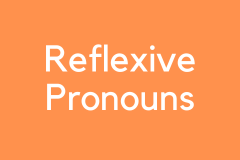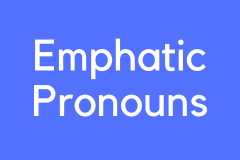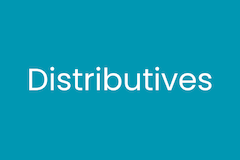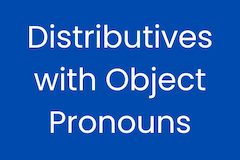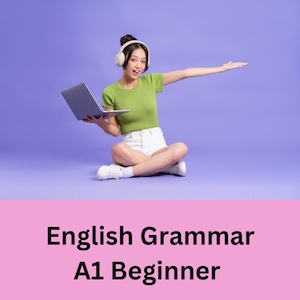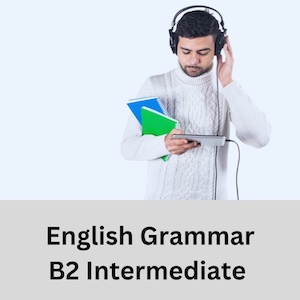Distributives
Listen to four conversations using the grammar point.
Answer the following questions about the interview.
Distributives
Point 1: The word"each"focuses on individuals, one by one. It is singular so it must agree verbs and nouns.
- Each car is special.
- Each room has air condintioning.
- Each student has a book.
- Each car contains a navigation system.
Point 2: "Every" is similar to "each," but it is used to refer to all members of a group collectively while still treating them individually.
- Every child needs attention.
- Every car on the street is parked.
- Every student in the class passed the exam.
- He bought every book in the store.
Point 3: "All" refers to the entire group or total number of something, without focusing on individual members.
With Plural Nouns
- All the students are present.
- All the cars were damaged by the storm.
With Uncountable Nouns
- All the water is clean.
- All the cake was eaten.
Point 4: "No" refers to the absence of anything regarding the topic.
With Plural Nouns
- No students came to the test.
- No tables were available.
With Uncountable Nouns
- We have no time.
- There is no food in the fridge.
Point 5: "Both" refers to two items together, and refers to them as a set.
- Both my parents are doctors.
- Both my tires are flat on my bike.
- Have you met both my sisters?
- I have two math classes and I failed both classes.
Point 6: "Both" and "all" usually appear before a noun, but they appear after the pronoun.
- I ate both apples.
- I ate them both.
- I read both books.
- I read them both.
- I ate all the cookies.
- I ate them all.
- I read all the books.
- I read them all.
Point 7: "Either" refers to one of two options, but not both. It is used to indicate a choice between two items. It is singular.
- We can stay or leave. Either option is fine.
- They have steak or fish. Either meal will do.
- Both my sisters are smart. Either one can help you.
- I bought two shirts, but I don't like either one.
Point 8: "Neither" is used to indicate that none of the two items or people is involved or affected. It is a negative form. It is singular.
- We can take a bus or a taxi. Neither option is cheap.
- My apartment has two rooms. Neither room has a window.
- There are two computers in my office. I use neither one.
- There were two desserts. Neither one looked good.
Main Text Goes Here

